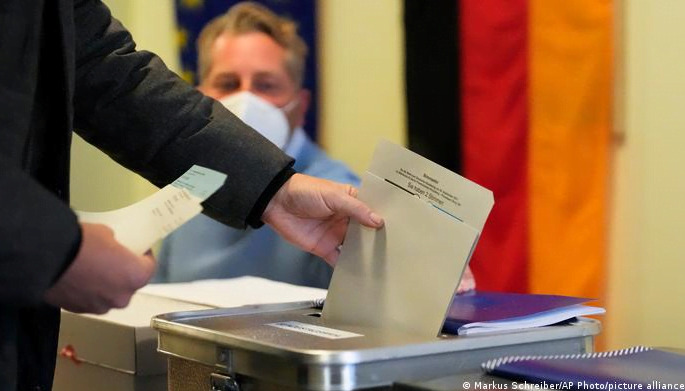
Photo: Archivo/RHC
By Guillermo Alvarado
Parliamentary elections were held in Germany, marking the definitive departure from the political sphere of Federal Chancellor Angela Merkel, which could also be the end of 16 consecutive years of a conservative government in the so-called European locomotive.
For some, not many, the victory of the German Social Democratic Party (SPD), which won 25.7 percent of the votes and which will give it 206 seats out of the 735 that make up the Federal Parliament, or Bundestag, came as a surprise.
The coalition that leads the current executive, Christian Democratic Union and Christian Social Union, CDU-CSU, had one of its worst results in recent years and lost five points compared to 2017, achieving 24.1 percent of votes and 196 deputies, something not expected.
Both, however, fell far short of the majority of 368 seats, so in a strict sense nothing is won or lost at the moment.
Both contenders, the Social Democrat Olaf Scholz and the Christian Democrat and Merkel's deputy, Armin Laschet, announced that they will start negotiations with the Greens, who have 118 seats, and the Liberal Party, with 92, and will try each on their own to put together a new government.
This will be a long process, which may take weeks, even months, during which the current Federal Chancellor will continue to govern.
Although some believe that there could be political instability in Germany, which is not very common, I am one of those who think that Merkel (in the photo) will continue to exercise power as she has done so far, with a firm hand, and will not allow things to get out of hand at the end of her term.
This idea is supported by the fact that neither of the two big political parties in Germany questions the model of the country that exists today, that is beyond any doubt. The differences are of style, nuance or some specific issues that in no way endanger the system.
The extreme right, represented by Alternative for Germany, slightly lowered its vote and was left with 83 seats, which does not endanger the majority, whoever it may be.
The good news is that the Left Party, Die Linke, saved its representation in the Federal Parliament, where it will have 39 members.
As for Angela Merkel's legacy, a separate paper will be needed, perhaps when she leaves office.
For the time being, it must be said that her name was not enough to boost her candidate Laschet, worn out, perhaps, by 16 years of power and successive financial, migratory, economic and public health crises due to the pandemic.

